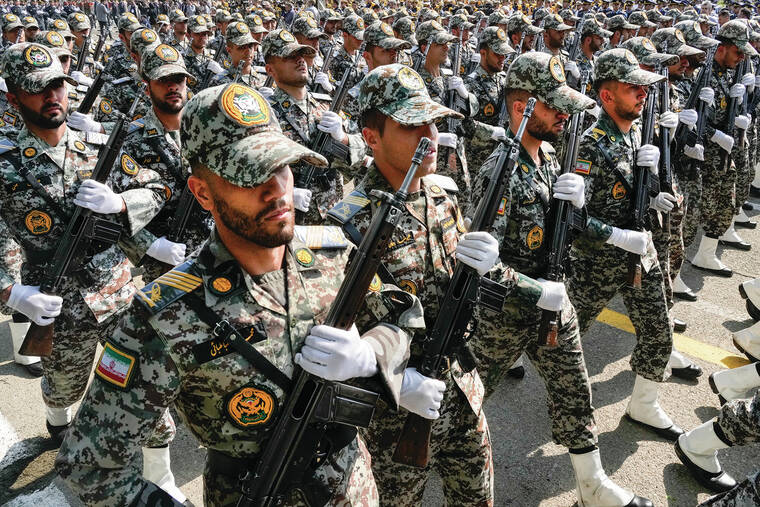Netanyahu brushes off calls for restraint, saying Israel will decide how to respond to Iran’s attack
JERUSALEM — Israeli Prime Minister Benjamin Netanyahu said Wednesday his country would be the one to decide whether and how to respond to Iran’s major air assault earlier this week, brushing off calls for restraint from close allies.
Israel has vowed to respond to Iran’s unprecedented attack without saying when or how, leaving the region bracing for further escalation after months of unrest linked to the ongoing war in Gaza.
ADVERTISING
Israel’s allies have been urging Israel since the attack to hold back on any response that could spiral. These calls were repeated on Wednesday during visits by the British and German foreign ministers.
The diplomatic pressures came as Iran’s president warned that even the “tiniest” invasion of its territory would bring a “massive and harsh” response. Violence meanwhile surged on Wednesday between Israel and the Iran-backed Lebanese militant Hezbollah group, which fired a volley of rockets and drones on northern Israel. The attack wounded at least 14 Israeli soldiers, six seriously, the army said. The military said it struck Hezbollah targets deep inside Lebanon in response.
Speaking to a meeting of his Cabinet, Netanyahu said he met Wednesday with both visiting foreign ministers and thanked them for their countries’ support. But he said Israel would make the call on its own on how to respond despite “all sorts of suggestions and advice” coming from Israel’s allies, some of whom — including the United States, the United Kingdom and France — helped Israel repel Iran’s drone and missile assault.
“I want to be clear: we will make our decisions ourselves. The state of Israel will do whatever is necessary to defend itself,” Netanyahu said.
Despite the tough rhetoric, Israel appears unlikely to attack Iran directly without at least the support of its top ally, the U.S. But it could resort to more covert methods such as targeting senior Iranian commanders or Iran-backed groups in other countries, or launching a cyber attack.
It’s unclear how Iran would then respond, given the heightened tensions — any miscalculation by either side risks setting off a regional war.
President Joe Biden’s administration on Tuesday said it would place new sanctions on Iran and has worked to coordinate a global rebuke of the attack while urging all sides to de-escalate. U.S. officials said earlier this week that Biden told Netanyahu that Washington would not participate in any offensive action against Iran.
Over the weekend, Iran launched hundreds of missiles and drones at Israel in response to an apparent Israeli strike on Iran’s Embassy compound in Syria on April 1 that killed 12 people, including two Iranian generals.



